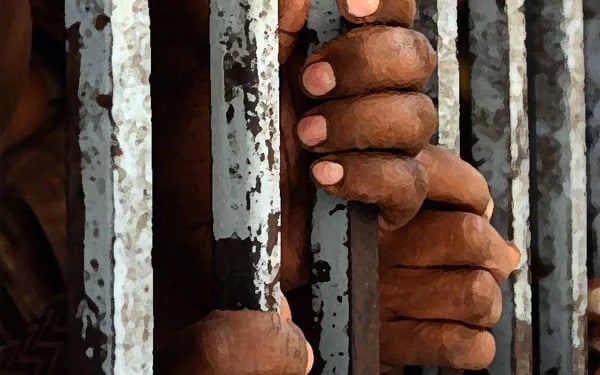Punjab government to release 20,000 prisoners owing to coronavirus pandemic
Similar measures are being taken around the world in light of the outbreak of the novel coronavirus
LAHORE: The Punjab government has decided to release 20,000 prisoners out of a total of 46,000 in order to contain the coronavirus from spreading in prisons across the province.
According to sources in the interior ministry, jail superintendents — who have reached out to the courts to approve the bail of prisoners handed sentences of seven years or less — took this step in light of special instructions, the sources said.
Bail requests were also filed for prisoners jailed for petty crimes, as well as the elderly, or criminals over 60 years of age, the sources added. Further, those with sentences ranging from seven years to 25 were being determined on a case-by-case basis.
In addition, bail requests were submitted for prisoners under trial for less serious crimes.
Jails in dire straits
Last week, the Islamabad High Court Chief Justice Athar Minullah had ordered for bails to be issued for prisoners facing trial for minor crimes in order to prevent the spread of the coronavirus. He made the decision while hearing a case of 1,362 incarcerated prisoners.
Islamabad Deputy Commissioner Hamza Shafqaat had assured the court that no prisoner held at Adiala Jail was infected with the coronavirus. However, Justice Minallah was worried given that the coronavirus outbreak worsened in China after it spread among prisoners.
The top IHC judge had noted how prisons in Pakistan were in dire straits and that the situation would get out of control if any prisoner became infected.
Prisoners being released globally
The court had also ordered the release of suspects currently in police custody.
Similar measures are being taken around the world. Afghanistan on March 26 announced the release of nearly 10,000 prisoners — mostly women, juveniles, and sick people — in an attempt to curb the spread of coronavirus as the number of local cases rose and tens of thousands of Afghans returned from neighbouring Iran — one of the countries hit hardest by the pandemic.
Afghan Attorney General Farid Hamidi had said President Ashraf Ghani's decree was directed at women, young offenders, critically-ill patients, and inmates aged over 55. "The decree is not for those who have committed crimes against national and international security," he cautioned.
'Ticking time bombs'
Separately, on March 17, US defense lawyers had compared crowded jails to "ticking time bombs” and urged law enforcement officials to release more defendants on bail as they awaited trial — an approach that has already been adopted by San Francisco and Philadelphia.
The Federal Defenders of New York — which represents defendants who cannot afford a lawyer — had written in a letter that prosecutors should not engage in "business as usual” when deciding whether to recommend jail for defendants awaiting trial.
"Absent extraordinary circumstances, namely cases that involve an imminent threat of violence, it does not advance public safety to add more people to our local jails,” the organization’s director, David Patton, had said in the letter to federal judges and prosecutors in Manhattan and Brooklyn.
“I truly believe the jails are ticking time bombs,” Patton had said, telling Reuters that his office had filed several motions asking that incarcerated defendants be released because of the coronavirus.
-
Security forces gun down 30 terrorists in multiple IBOs in KP: ISPR
-
MQM-P calls for new province in Sindh
-
US report validates Pakistan military edge over India: PM
-
Banned TTP poses serious threat to Pakistan security: UNSC panel
-
CM Afridi clarifies remarks on by-poll after ECP requests army deployment
-
Dubai sees 3.2m Pakistani passengers in 2025 as airport sets new milestone
-
Security forces kill 23 Indian proxy terrorists in KP's Kurram
-
Pakistan to construct island to boost oil exploration: report












